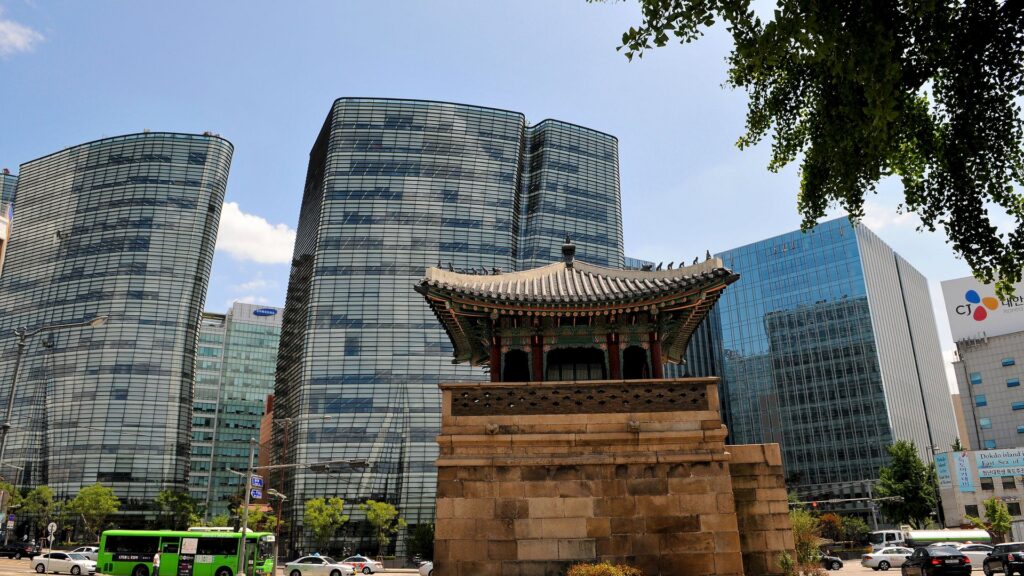Gwangju, also known as Kwangju, is a bustling city located in the southwestern part of South Korea. With a population of over 1.5 million people, Gwangju is the sixth largest city in South Korea.
Gwangju is well-known for its rich cultural heritage, vibrant arts scene, and delicious cuisine. The city is home to numerous art galleries, museums, and performance venues, making it a hub for artists and art lovers alike. Gwangju is also famous for its traditional Korean dishes, such as bibimbap and kimchi.
One of the most significant events in Gwangju's history is the Gwangju Uprising of 1980, in which citizens protested against the military dictatorship that ruled South Korea at the time. The uprising resulted in a violent crackdown by the government, leading to the deaths of hundreds of civilians. Today, Gwangju is remembered for its spirit of democracy and resistance.
In addition to its cultural and historical significance, Gwangju is also a modern and dynamic city, with a thriving economy and a high standard of living. The city is home to several universities, research centers, and tech companies, making it a hub for innovation and technology.
Overall, Gwangju is a city that seamlessly blends tradition and modernity, offering visitors a unique and memorable experience. Whether you're interested in exploring historical landmarks, enjoying delicious cuisine, or immersing yourself in the local arts scene, Gwangju has something for everyone.
What to explore:
1. Gwangju Biennale: Established in 1995, the Gwangju Biennale is one of the most prestigious contemporary art exhibitions in Asia. It showcases works by both Korean and international artists, attracting art enthusiasts from all over the world.
2. Chonnam National University Museum: This museum is home to a diverse collection of artifacts and artworks that showcase the rich cultural heritage of Korea. Visitors can learn about the history and traditions of the country through the museum's exhibits.
3. Mudeungsan National Park: Located just outside of Gwangju, Mudeungsan National Park offers breathtaking views of the surrounding landscape, as well as hiking trails that lead to stunning rock formations and waterfalls.
4. May 18th National Cemetery: This memorial site commemorates the victims of the 1980 Gwangju Uprising, a pro-democracy movement that was violently suppressed by the government. The cemetery serves as a reminder of the city's role in the fight for democracy in South Korea.
5. Sajik Park: This traditional Korean garden is the perfect place to relax and unwind. Visitors can stroll through the park's beautiful landscapes, featuring ponds, pavilions, and peaceful walking paths.
6. Gwangju World Cup Stadium: Sports fans can visit this iconic stadium, which was built for the 2002 FIFA World Cup. The stadium hosts various sporting events and concerts throughout the year.
7. Gwangju Folk Museum: Learn about the history and culture of Gwangju at this museum, which features exhibitions on traditional crafts, folk art, and local traditions.
8. Yangnim-dong Textile Complex: If you're interested in textiles and fashion, visit this vibrant district in Gwangju, which is known for its textile shops and workshops. Visitors can purchase unique fabrics and clothing items made by local artisans.
9. Damyang Bamboo Forest: Just a short drive from Gwangju, the Damyang Bamboo Forest is a serene natural oasis with walking trails, bamboo groves, and picturesque bridges. It's a great spot for a peaceful nature walk or a relaxing picnic.
10. Gwangju Design Biennale: Held every two years, the Gwangju Design Biennale showcases cutting-edge design concepts and innovations from around the world. Visitors can explore interactive installations, workshops, and exhibitions that highlight the intersection of design and technology.
